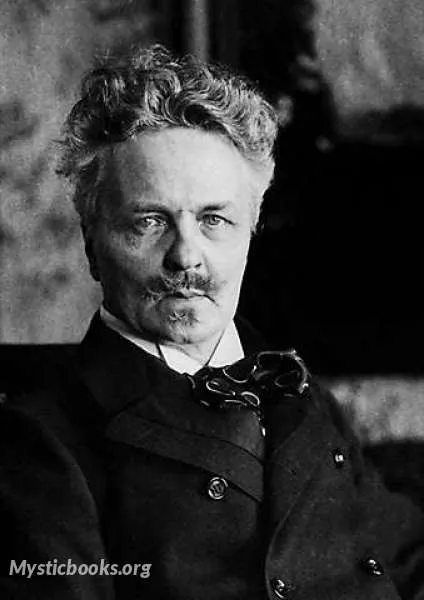
Timeline
Title
Country/Nationality
August Strindberg
Johan August Strindberg was a Swedish playwright, novelist, poet, essayist and painter. A prolific writer who often drew directly on his personal experience, Strindberg's career spanned four decades, during which time he wrote more than sixty plays and more than thirty works of fiction, autobiography, history, cultural analysis, and politics. A bold experimenter and iconoclast throughout, he explored a wide range of dramatic methods and purposes, from naturalistic tragedy, monodrama, and history plays, to his anticipations of expressionist and surrealist dramatic techniques. From his earliest work, Strindberg developed innovative forms of dramatic action, language, and visual composition. He is considered the "father" of modern Swedish literature and his The Red Room (1879) has frequently been described as the first modern Swedish novel. In Sweden, Strindberg is known as an essayist, painter, poet, and especially as a novelist and playwright, but in other countries he is known mostly as a playwright.
The Royal Theatre rejected his first major play, Master Olof, in 1872; it was not until 1881, when he was thirty-two, that its première at the New Theatre gave him his theatrical breakthrough. In his plays The Father (1887), Miss Julie (1888), and Creditors (1889), he created naturalistic dramas that – building on the established accomplishments of Henrik Ibsen's prose problem plays while rejecting their use of the structure of the well-made play – responded to the call-to-arms of Émile Zola's manifesto "Naturalism in the Theatre" (1881) and the example set by André Antoine's newly established Théâtre Libre (opened 1887). In Miss Julie, characterisation replaces plot as the predominant dramatic element (in contrast to melodrama and the well-made play) and the determining role of heredity and the environment on the "vacillating, disintegrated" characters is emphasized. Strindberg modeled his short-lived Scandinavian Experimental Theatre (1889) in Copenhagen on Antoine's theatre and he explored the theory of Naturalism in his essays "On Psychic Murder" (1887), "On Modern Drama and the Modern Theatre" (1889), and a preface to Miss Julie, the last of which is probably the best-known statement of the principles of the theatrical movement.
During the 1890s he spent significant time abroad engaged in scientific experiments and studies of the occult. A series of apparent psychotic attacks between 1894 and 1896 (referred to as his "Inferno crisis") led to his hospitalization and return to Sweden. Under the influence of the ideas of Emanuel Swedenborg, he resolved after his recovery to become "the Zola of the Occult". In 1898 he returned to play-writing with To Damascus, which, like The Great Highway (1909), is a dream-play of spiritual pilgrimage. His A Dream Play (1902) – with its radical attempt to dramatize the workings of the unconscious by means of an abolition of conventional dramatic time and space and the splitting, doubling, merging, and multiplication of its characters – was an important precursor to both expressionism and surrealism. He also returned to writing historical drama, the genre with which he had begun his play-writing career He helped to run the Intimate Theatre from 1907, a small-scale theatre, modeled on Max Reinhardt's Kammerspielhaus, that staged his chamber plays (such as The Ghost Sonata).
Books by August Strindberg
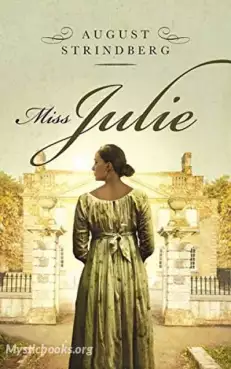
Countess Julie
Miss Julie is a naturalistic play written in 1888 by August Strindberg. It is set on Midsummer's Eve and the following morning, which is Midsummer and the Feast Day of St. John the Baptist. The setting is an estate of a count in Sweden. Miss Julie is...
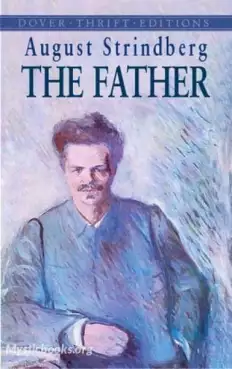
The Father
The Father is a naturalistic tragedy by Swedish playwright August Strindberg, written in 1887. It is about the struggle between parents over the future of their child; resulting in the mother, using her cunning manipulative skills, subduing and final...
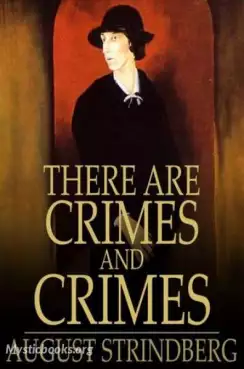
There are Crimes and Crimes
Maurice, a playwright on the brink of success, feels so confident in his professional future he proposes to Jeanne, his mistress. However, upon meeting Henriette, his friend's mistress, he gets swept away by his overwhelming passion for her. The feel...
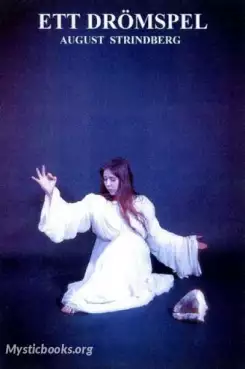
A Dream Play
A Dream Play was written in 1901 by the Swedish playwright August Strindberg. It was first performed in Stockholm on 17 April 1907. It remains one of Strindberg's most admired and influential dramas, seen as an important precursor to both dramatic Ex...
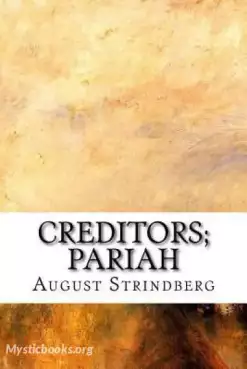
Creditors
Creditors is a naturalistic tragicomedy by the Swedish playwright August Strindberg. It was written in Swedish during August and September 1888 in Denmark. It was first published in Danish in February 1889 and appeared in Swedish in 1890. It premiere...
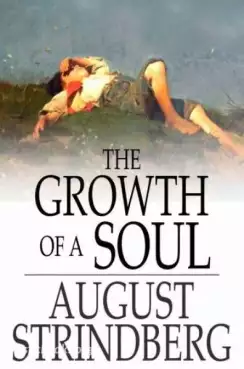
Growth of a Soul
The history of the development of a soul can be sometimes written by giving a simple bibliography; for a man who lives in a narrow circle and never meets great men personally, seeks to make their acquaintance through books. The fact that the same boo...
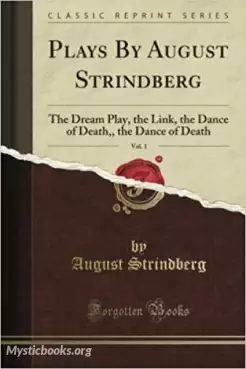
The Dance of Death
For twenty-five years Edgar, a captain in the Swedish coast artillery, and his wife, Alice, live an unhappy existence. Their unhappiness is caused by Edgar’s contempt for everyone else in the world; he thinks of himself as a better being than others,...
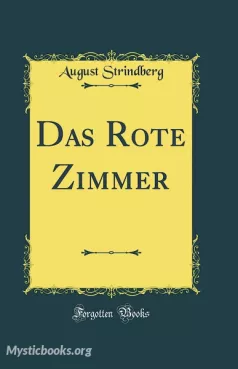
Das rote Zimmer
Es ist ein packender Roman, der sich perfekt für eignet. Geschrieben von dem renommierten Autor August Strindberg, entführt dieses Buch junge Leser in eine faszinierende Welt voller Geheimnisse und Emotionen. In "Das rote Zimmer" dreht sich alles um...
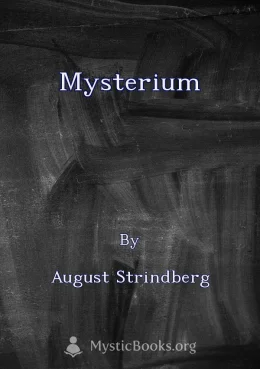
Mysterium
Das Drama »Mysterium« von August Strindberg entstand während der sogenannten »Inferno-Krise«, einer düsteren Phase in Strindbergs Leben, in der er unter Wahnvorstellungen, Realitätsverlust und Depressionen litt. Das Werk bildet in gewisser Weise den...
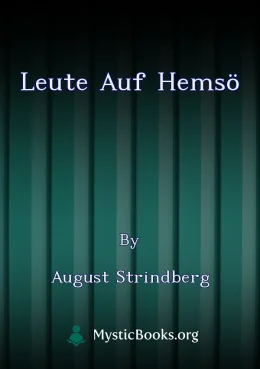
Leute auf Hemsö
Die Novelle spielt auf der Schäreninsel Hemsö und dreht sich um den Knecht Carlsson, der sich nach dem Tod des Gutsherrn zum neuen Herrn aufschwingt und eine strenge Herrschaft führt. Das Buch ist eine scharfzüngige Satire auf die sozialen Verhältnis...
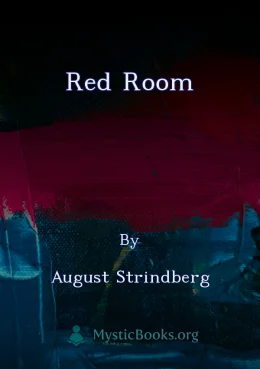
Red Room
Red Room is a naturalistic novel that follows Arvid Falk, a young idealist who abandons a bureaucratic life to become a journalist and writer. As he delves into various aspects of Stockholm's society, including politics, publishing, theater, philanth...

Ghost Sonata
The Ghost Sonata, a play in three acts, plunges the audience into a world of supernatural occurrences and psychological turmoil. It tells the story of a young student who ventures into a seemingly grand Stockholm apartment, only to find it inhabited...
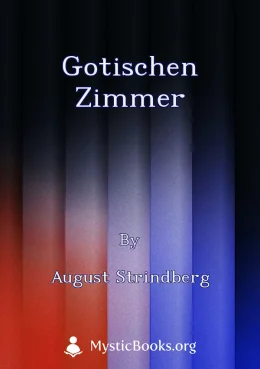
gotischen Zimmer
Set in Gothenburg around the turn of the century, "The Gothic Room" is a satirical novel that critiques Swedish society. The book is a sequel to "The Red Room" and features many of the same characters. Strindberg's writing is sharp and witty, and he...